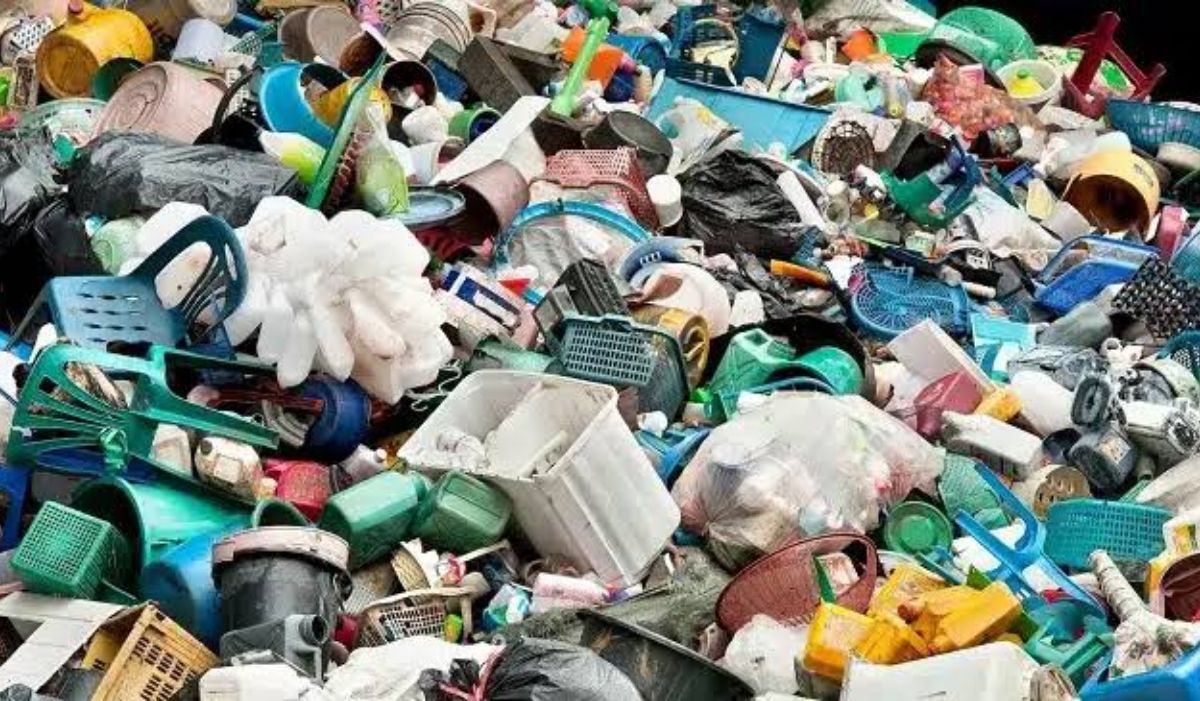Lagos Govt To Enforce Single-Use Plastics Ban from July Amid Health Implications

The Lagos State Government has announced that full enforcement of the ban on single-use plastics will commence on July 1, citing health implications associated with their daily use.
This marks a significant milestone in the state’s environmental protection efforts.
Mr. Tokunbo Wahab, the State Commissioner for the Environment, made this announcement on X (formerly Twitter) on Monday, emphasising the government’s methodical approach to implementation.
According to research, single-use plastics expose humans to harmful chemicals such as BPA, phthalates, and styrene, which can cause hormonal disruption, cancer, and chronic diseases.
These plastics degrade into microplastics, which may be ingested or inhaled, affecting gut and lung health. Heat exposure increases the leaching of chemicals from plastics. Additionally, environmental pollution from plastics contaminates ecosystems and food chains, indirectly harming human health.
According to Wahab, state officials have spent nearly 18 months conducting strategic consultations and facilitating a transition period for affected stakeholders. During this preparation phase, authorities organised multiple engagement sessions with manufacturers and distributors of the affected products.
The state initially introduced restrictions on Styrofoam usage in January 2024—a move that sparked considerable debate among residents and significantly affected vendors whose businesses relied on these products.
However, the commissioner emphasised that sufficient time had been provided to comply with international environmental standards, asserting that practices deemed unacceptable in other regions should not be normalised in Lagos.
“We re-emphasised this stand during a courtesy visit by the management of TETRA PAK West Africa Limited, led by the Managing Director, Haithem Debbiche.
This is about environmental responsibility, and we have given ample time to align with global best practices. What is unacceptable elsewhere cannot become standard in Lagos. We must protect our future and do what is right for the greater good.
We’re not here to score points—we’re here to do the work. Just like with the successful enforcement of the Styrofoam ban, we will insist on accountability and responsibility. A cleaner, healthier Lagos is within reach if we all play our part.”
The enforcement efforts have already shown seriousness through concrete action. In September 2024, the Lagos Environmental Sanitation Corps (LAGESC), commonly known as KAI, conducted a major operation that resulted in the destruction of Styrofoam products valued at ₦5 million. These items were confiscated from various locations across the state over a single month.
The incineration took place in Epe, with LAGESC working alongside officials from the Lagos Waste Management Authority (LAWMA). During the event, LAGESC Corps Marshal Major Olaniyi Olatunbosun Cole (retired) reinforced the administration’s unwavering stance, confirming that the state maintains a strict prohibition on the sale, use, and distribution of Styrofoam packaging, with no possibility of reversal.
This state-level initiative aligns with broader federal environmental policies. In June 2024, the Federal Government implemented restrictions on single-use plastics within government institutions, ministries, departments, and agencies.
Minister of State for Environment, Iziaq Salako, announced the federal policy during a media briefing at the Presidential Villa, following a Federal Executive Council meeting presided over by President Bola Tinubu in Abuja, the nation’s capital.
The minister explained that Nigeria’s National Policy on Plastic Waste Management, established in 2020, includes provisions to ban certain plastic categories—primarily single-use items—by January 2025.
Salako noted that these restrictions support the government’s broader environmental agenda, including efforts to address climate change, prevent biodiversity loss, and combat plastic pollution—all of which are pressing national concerns.
He also outlined the environmental and public health implications of plastic waste, highlighting how such materials frequently obstruct drainage systems and contribute to urban flooding, while simultaneously contaminating marine environments and posing risks to both human health and ecological systems.



